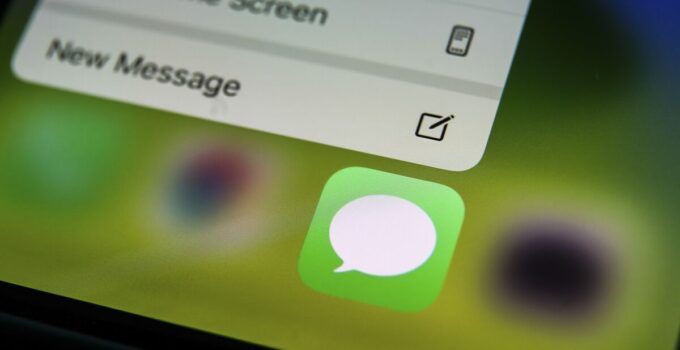EU Exempts Apple’s iMessage from Interoperability Mandate Under DMA Investigation. Apple’s iMessage, the tech giant’s popular messaging service, will not be subjected to new EU regulations aimed at ensuring interoperability among messaging platforms. This development comes after a detailed investigation by European regulators under the Digital Markets Act (DMA), which seeks to enforce a more open digital environment by targeting the practices of major tech companies considered “gatekeepers.”
Health Concerns Unfounded for Apple Vision Pro’s Wi-Fi and Bluetooth
The regulatory scrutiny was part of a broader initiative to promote digital fairness and competition within the EU. The DMA’s focus on interoperability aimed to break down barriers between different messaging services, potentially requiring platforms like iMessage to be compatible with other services. This would have marked a significant shift in how users across different ecosystems communicate, fostering an unprecedented level of cross-platform integration.
However, the investigation into iMessage, alongside Microsoft’s Bing search engine, concluded that neither service holds a dominant position that would necessitate compliance with the DMA’s stringent requirements for gatekeeper platforms. This conclusion was drawn from the findings that iMessage, in particular, does not see widespread use by businesses, a factor contributing to its exemption from the interoperability mandate.

The decision is significant, sparing Apple from having to make substantial alterations to iMessage’s operating framework within the European Union. It reflects a nuanced understanding of the digital landscape, where not all services provided by major tech entities automatically translate to gatekeeping roles under the DMA’s criteria.
Nonetheless, the DMA continues to prompt significant changes in how tech companies operate within the EU. Apple, for instance, is preparing to introduce updates with iOS 17.4 that will allow for the installation of apps from sources outside the App Store, a move towards more open app ecosystems. This adjustment underscores the broader impact of the DMA, pushing for more consumer choice and flexibility in software installation and use.
This evolution in the EU’s digital policy landscape illustrates the delicate balance between promoting competition and maintaining the proprietary nature of tech platforms. As regulations evolve, companies like Apple are navigating these changes, adapting their strategies to comply with new laws while striving to preserve the unique aspects of their digital ecosystems.
In conclusion, the exemption of iMessage from DMA’s interoperability requirements marks a pivotal moment in the ongoing dialogue between regulatory bodies and the tech industry. It underscores the complexity of applying broad regulations to a diverse range of digital services and platforms, each with its own set of challenges and market dynamics. As the digital market in the EU continues to evolve under the DMA, the tech industry will likely see further adjustments in response to this landmark regulation.



